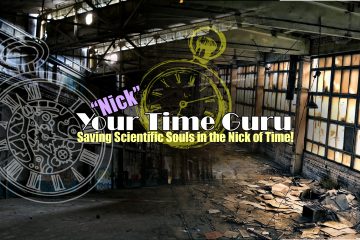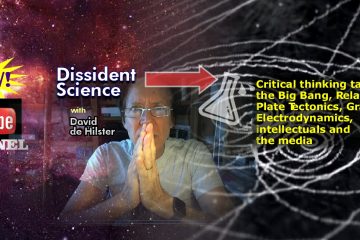
Our YouTube Channel
63) Vladimir Netchitalio's Hypersphere World-Universe Model, Part 8
Vladimir Netchitalio's new cosmology model, Hypersphere World-Universe Model (WUM), describes a new paradigm that addresses known problems in cosmology. This video is Part 8 of an 8 part series that describes the new ideas in conceptual terms. Part 8 discusses the some history of the evolving ideas about cosmology including deep thinking by Hoyle, Dirac and Tesla which provided some foundational ideas for WUM. It also discusses how WUM predicted the values for many key physics parameters prior to their empirical measurement and also reviews the many cosmology problems that WUM resolves.
62) Vladimir Netchitalio's Hypersphere World-Universe Model, Part 7
Vladimir Netchitalio's new cosmology model, Hypersphere World-Universe Model (WUM), describes a new paradigm that addresses known problems in cosmology. This video is Part 7 of an 8 part series that describes the new ideas in conceptual terms. Part 7 focuses on High-Energy Atmospheric Physics and explains ball lightning's and the Tunguska Event"s empirical data in terms of WUM.
61) Vladimir Netchitalio's Hypersphere World-Universe Model, Part 6
Vladimir Netchitalio's new cosmology model, Hypersphere World-Universe Model (WUM), describes a new paradigm that addresses known problems in cosmology. This video is Part 6 of an 8 part series that describes the new ideas in conceptual terms. Part 6 focuses on our earth and explains the related cosmological and geological empirical data in terms of WUM.
60) Vladimir Netchitalio's Hypersphere World-Universe Model, Part 5
Vladimir Netchitalio's new cosmology model, Hypersphere World-Universe Model (WUM), describes a new paradigm that addresses known problems in cosmology. This video is Part 5 of an 8 part series that describes the new ideas in conceptual terms. Part 5 focuses on our solar system and how many mysteries of the solar system are explained in terms of the new cosmology paradigm.
59) Vladimir Netchitalio's Hypersphere World-Universe Model, Part 4
Vladimir Netchitalio's new cosmology model, Hypersphere World-Universe Model (WUM), describes a new paradigm that addresses known problems in cosmology. This video is Part 4 of an 8 part series that describes the new ideas in conceptual terms. Part 4 examines new observations of the Milky Way Galaxy and the Andromeda Galaxy and explains their formation in terms of WUM.
58) Vladimir Netchitalio's Hypersphere World-Universe Model, Part 3
Vladimir Netchitalio's new cosmology model, Hypersphere World-Universe Model (WUM), describes a new paradigm that addresses known problems in cosmology. This video is Part 3 of an 8 part series that describes the new ideas in conceptual terms. Part 3 shows how his cosmological paradigm shift, WUM, solves the longstanding cosmological problem of "How did superclusters, galaxies, solar systems, planets and moons get their large angular momentum?"
57) Vladimir Netchitalio's Hypersphere World-Universe Model, Part 2
Vladimir Netchitalio's new cosmology model, Hypersphere World-Universe Model, describes a new paradigm that addresses known problems in cosmology. This video is Part 2 of an 8 part series that describes the new ideas in conceptual terms. The theory has predicted well in advance many of the new findings in astronomy/cosmology of the last 2 decades. Part 2 builds a classical physics model starting with great cosmological ideas of Dirac, Tesla and others that have been mostly forgotten.
56) Vladimir Netchitalio's New Cosmology Paradigm
The currently accepted theory of cosmology has a number of well known intractable problems. Vladimir Netchitalio's new cosmology model, Hypersphere World-Universe Model, describes a new paradigm that addresses these known problems in cosmology. This video is Part 1 of an 8 part series that describes the new ideas in conceptual terms. The theory has predicted well in advance many of the new findings in astronomy/cosmology of the last 2 decades.
55 ) Alasdair Beal shows fundamental errors in Einstein's derivation of Special Relativity.
Alasdair Beal gives an excellent presentation on the FUNDAMENTAL errors in Einstein's derivation of Special Relativity. Alasdair does a detailed analysis of Einstein's logic/math and finds a number of flaws including violations of his Relativity Principle. The live audience to the presentation gave the highest praise to this clear and easy to understand refutation of SR!
35) A presentation by Dr. Dennis P. Allen, Jr. concerning inertial propulsion.
(Note this is an edited version of video 35): Dr. Dennis P. Allen Jr. gives a brief history of inertial propulsion including the Boeing CMG inertial propulsion technology, the Veljko Milkovic oblique (that is, slanted) pendulum driven cart, the legendary Dean drive, and Elon Musk's SpaceX's apparent IP technology to keep their very low level communication satellites from falling from the sky due to orbital decay. The CNPS members' two invitation emails had an attempted computer simulation of this Milkovic cart as an attachment with the observation that this simulation failed because it was strictly Newtonian without any mention of energy (and so energy conservation) and his mechanics implies separate conservation of angular and linear momentum; but, in viewing the video of this cart in motion, one only sees the trading of angular swinging momentum for cart chassis linear momentum (because of bob centrifugal force) instead. And then the various alternative mechanics that might do better than Newton's here are briefly mentioned & discussed such as Davis Mechanics, Maurice Coulombe's patented mechanical device, Eric Laithwaite's IP devices, Harvey & John Fiala's important IP patent, and Gottfried Gutsche's more modern energy over momentum IP mechanics.


